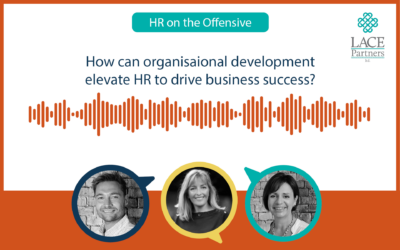HR systems have been shown to be critical to organisational success. Will HR tech move from being a back office to a major enabling tool to help business make enough of their human potential? Max from the HR Tech team shares his thoughts…
Why HR should make data a priority
HR systems and the ability to count, track and model your workforce, without a cottage industry of spreadsheets, have become critical to the operation of most organisations. Never has this been more true than in the times of Covid-19, with organisations developing dashboards, reports, tracking and registration functionality at pace to try and manage around the virus and its impact on their operating model, client delivery and go to market strategy.
Combined with the move to collaborative remote working and managing a remote workforce, and suddenly HR and workforce data covering location, skills, performance, cost, availability, health and productivity are pushed to the forefront of enabling organisations to survive. What were back office systems and data just weeks ago, and generally accepted as useful to be improving as a “hobby” around sales and client delivery, are now critical to organisational success in the “new normal”. How else will larger organisations care for their workforce, restructure sensitively and optimise their operations than through their HR and workforce data?
The importance of reliable data
For many organisations with integrated HR and workforce systems this has been a challenging journey, but one which could be made with some sweat (and tears) to develop and deploy the tools needed, in what would have been impossibly tight timeframes only months ago. The technology development was tricky and needed to be done quickly, but it was possible to rapidly develop and deploy tools with an agile approach. The real challenge though is how useful the new tools and reports are is dependent on how integrated, consistent, and accurate the HR and workforce data is.
For organisations with fragmented HR and workforce systems and data this has been a much harder journey, stitching together disparate data sets, trying to support executive decision making on the fly. If you are only as good as your data and your data is quicksand, then how can you make educated, informed, business critical decisions?
As we start to settle into the new normal, with no real end in sight to the covid-19 threat, it is more critical than ever to improve your HR technology and data. The number of clients we are talking to about HR technology and data health checks and roadmaps has rapidly increased as the initial crisis has started to stabilise and HR have a few seconds to think about what they would do differently to avoid the pain next time.
Where to begin on your data journey
A structured approach to reviewing your current HR application landscape and data, identifying “opportunities” to improve and govern the data, and remediate process issues causing inconsistent data, has become a common request. Our approach is to rapidly review the current systems and data to identify pragmatic, actionable insights and interventions which can be executed at pace. A common pain point is how to better integrate HR and strategic workforce planning processes, systems and data. Post the initial review and quick fix actions we are often helping to review (where it exists) clients current HR tech roadmaps to avoid the same issues in the next crisis.
Conclusion
The initial crisis might have stabilised but as HR and HR technology professionals you will need to support ongoing challenges to your organisation’s workforce and way of working. How will you know when the next crisis lands, will your new systems show you an increase in cases in your workforce, or will you read about it in the news and react after the fact? It is time to bring HR data and technology out of the back office and into the light.
If you’d like to talk about some of the challenges you have faced with your HR and workforce systems and data, please feel free to reach out to the LACE Partners team on +44 (0) 20 8065 0310, or email us at info@lacepartners.co.uk.






